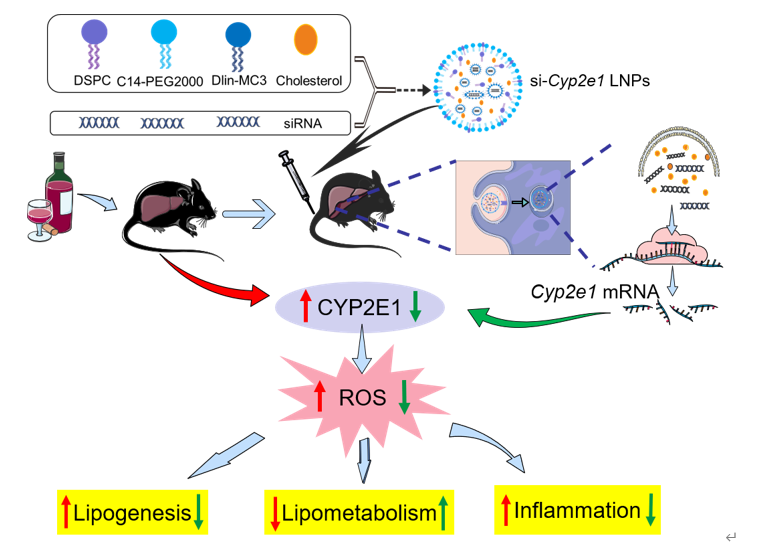A paper titled “Amelioration of Ethanol-Induced Oxidative Stress and Alcoholic Liver Disease by RNAi in vivo Targeting Cyp2e1” was recently published on Acta Pharmaceutica Sinica B (doi.org/10.1016/j.apsb.2023.01.009).

Alcoholic liver disease (ALD) results from continuous and heavy alcohol consumption. The current treatment strategy for ALD is based on alcohol withdrawal coupled with antioxidant drug intervention, which is a long process with poor efficacy and low patient compliance. Alcohol-induced CYP2E1 upregulation has been demonstrated as a key regulator of ALD, but CYP2E1 knockdown in humans was impractical, and pharmacological inhibition of CYP2E1 by a clinically relevant approach for treating ALD was not shown. In this study, we developed a RNAi therapeutics delivered by lipid nanoparticle, and treated mice fed on Lieber-DeCarli ethanol liquid diet weekly for up to 12 weeks. This RNAi-based inhibition of Cyp2e1 expression reduced reactive oxygen species and oxidative stress in mouse livers, and contributed to improved ALD symptoms in mice. The liver fat accumulation, hepatocyte inflammation, and fibrosis were reduced in ALD models. This study suggested the feasibility of RNAi targeting to CYP2E1 as a potential therapeutic tool to the development of ALD.
Professor Hao Yin (Frontier Science Centre for Immunology and Metabolism, Medical Research Institute of Wuhan University) was the co-corresponding author of this work.